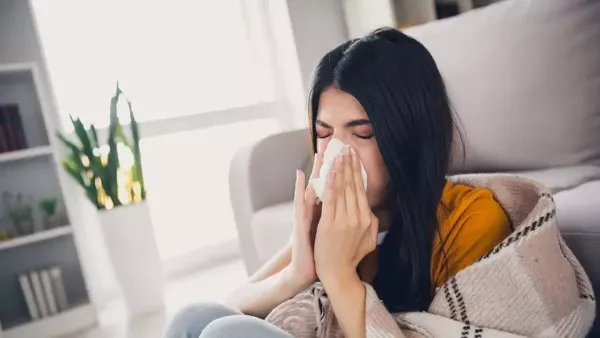
So do air purifiers help allergies? In short, yes they can, but only to a certain extent.
Air purifiers can be effective in trapping small particles that trigger allergies, preventing them from moving in the air and then breathing. Although these devices are not a complete solution, Dr. Payal Gupta, assistant professor at the Sunstate Medical Center in New York and National Spokesperson of the American Lung Association, told live science by email. He said, “Each tool has its own limitations, and personal reactions may vary.”
Anita Ivanova, an advisor Anita Ivanova, a pediatric allergy nurse at the Sandwell and West Birmingham Hospitals NHS Trust in Birmingham, England, agrees with this statement.
Ivanova said, “Air purification is often recommended as a component of environmental improvement for patients with allergic respiratory diseases, but there is very little medical evidence to support the fact that air purifiers help reduce allergies or respiratory symptoms directly.” He said, “Scientifically [इन उपकरणों की] Large random control tests are required to be able to prove real effectiveness. ”(Random controlled tests for comparison include placebo group, and it can provide direct evidence that the intervention relieves specific symptoms.)
Historically, studies conducted have suggested that air filtration can help reduce some symptoms of hey fever, such as sneezing, nasal closure, and water from the eyes. However, according to 2024 analysis published in Journal Indoor Air, it does not significantly improve people's lung function, does not increase their quality of life or reduce their needs of allergies.
These mixed conclusions can partially arise from the limits of studies. For example, the air purifier is tested in carefully controlled conditions in laboratories rather than real -world landscapes. Factors such as the location of the purifier, its flow rate and its operational time will also affect how well it reduces allergic symptoms, so there may be some discrepancies between studies.
Different filters within the air purifier can also change their effectiveness. Most of the best air purifiers in the market are equipped with high-efficiency particulate air (HEPA) filter, which can remove dust, pollen and air particles up to 99.97% of 0.3 μm measuring 0.3 microns from air as per the United States Environmental Protection Agency (EPA). These filters have a multi -rated network of very fine fiberglass threads – which are thinner than human hair threads. “Hepa filters are particularly effective in preventing the particles in the air, including some common allergens,” said Gupta.
For example, air purifiers equipped with Hepa filter were found to be more effective than the HVAC system (heating, ventilation and air conditioning units) in filtering the small air as much as the 2.5 μm. For 12 months, scientists monitored the level of air pollution in 87 school classrooms with 99 school classrooms and HVAC systems with HEPA filter air purifiers and found that the level of particles in the air in the classroom equipped with non-hepa air cleaner was 39.9% higher.